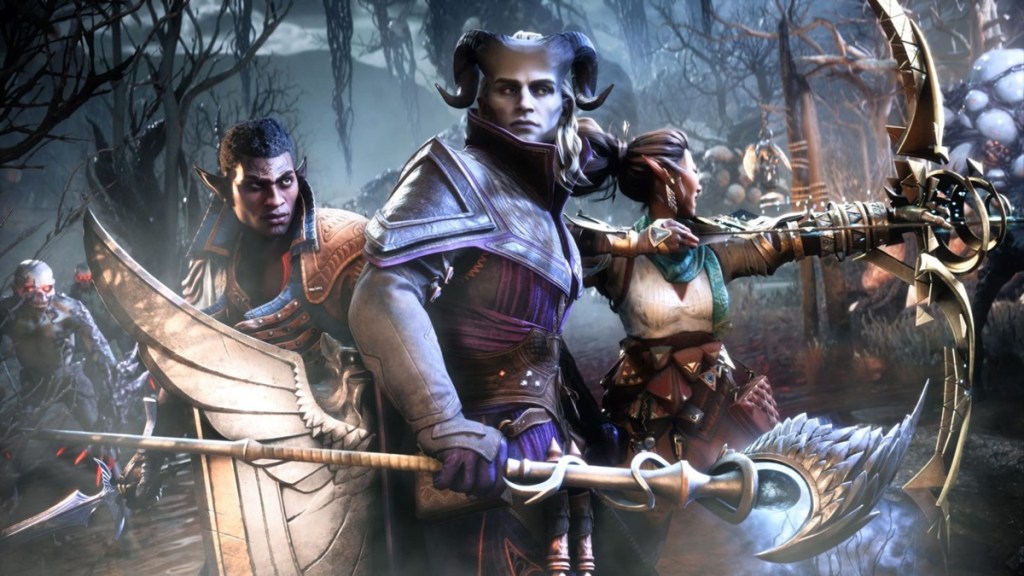BioWare has revealed why companions can’t be controlled in Dragon Age: The Veilguard. despite this being a key part of the experience in earlier games. Despite decreasing the number of companions to make up the party from three to two, the developer felt like controlling companions in Veilguard was becoming detrimental to the player’s experience.
Dragon Age: The Veilguard companions were too technically demanding
Companions have become a vital part of the experience in The Veilguard to the point where players “literally cannot save the world without these characters.” However, BioWare wants players to fall into the role of the new playable character Rook and focus on his actions, which creates some problems.
Game director Corinne Busche told Edge magazine that Dragon Age: The Veilguard “is a much higher actions-per-minute game. It is more technically demanding on the player. So when we tried allowing you full control of your companions as well, what we’ve found is it wasn’t actually adding to the experience. In fact, in some ways, it was detrimental, given the demanding nature of just controlling your own character.” She added that players were “more engaged than ever” when control over party members was removed.
Players will still be able to have some say in how companions behave during combat, though. Busche used returning companion Lace Harding as an example: “She’s got her own behaviors; how she prioritizes targets, whether she gets up close and draws aggro or stays further back at range. But you’ll be able to direct her in combat by activating her abilities from the wheel.”
The lack of control over characters does have some benefits. Companions can continue to have their own lives and paths in the world. They’ll have their own story arcs with different villains and characters spread throughout the game’s regions. Players can stumble upon these instances; you can find Neve investigating an abduction case in Minrathous, for example. Players can engage with these story arcs, but if they don’t, the arcs might resolve on their own with effects on the story and character relationships in the future.





